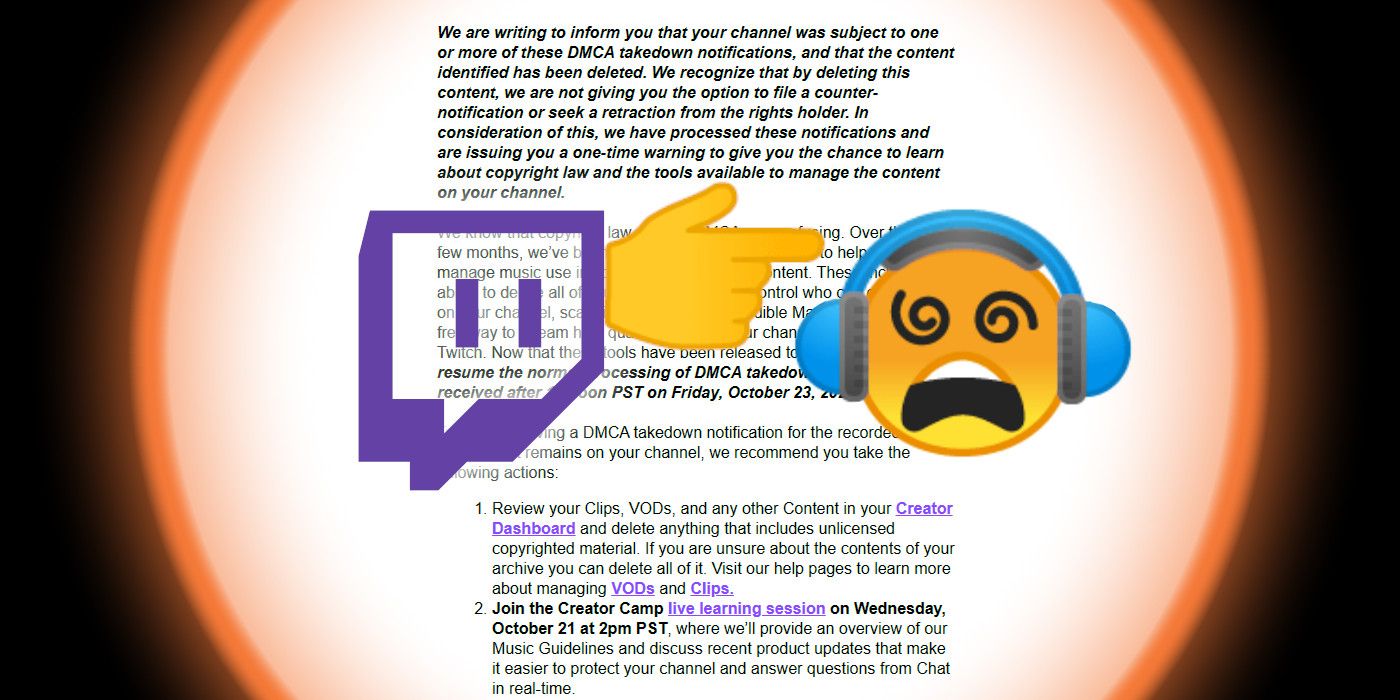The question of what counts as "fair use" of copyrighted materials is a long and complicated argument. The Digital Millenium Copyright Act (DMCA) has been in practice since 1998 with the intent to protect copyright holders from the misuse of their works. Section 512 of the Copyright Act enables copyright holders to remove infringing content without litigation. While good in theory, many streamers are discovering how the harsh reality of copyright law can impact their Twitch channel.
This morning a number of Twitch streamers received an email that stated this: "We are writing to inform you that your channel was subject to one or more of these DMCA takedown notifications, and that the content identified has been deleted." Due to the fact the videos were deleted instead of pulled from public viewing, streamers have no means of checking which videos were flagged, and therefore can't dispute the claims, as is their legal right.
This warning unfortunately does not come as a big surprise, as Twitch has already set a precedent of siding with the takedown issuer requests as a rule. Just last June, the DMCA issued takedown warnings to Twitch streamers, and Twitch staff advised creators to delete any videos that could potentially be in violation. From the streamer's perspective, this can be seen as a horribly draconian case of "guilty until proven innocent."
Twitch makes use of Audible Magic, which goes through videos listening for copyrighted music. The streaming service has an incentive to respond quickly to DMCA takedown requests, simply because the company can be fined if the takedown order is not processed in due time.
However, many streamers are criticizing Twitch for deleting content without even giving content creators a list of which videos were deleted, leaving them with no means to dispute the takedown or seek proper licensing. Even Audible Magic can make mistakes, but due to Twitch's swift and brutal judgment, streamers do not have the evidence they need to fight back against potential false claims.
Some argue that the use of copyrighted music in game streams falls under the umbrella of "fair use," but the line is extremely blurry. The myth is that anyone can use copyrighted music if the clip is less than 30 seconds, but the Recording Industry Association of America (RIAA) states outright that this is not the case.
The RIAA is notorious for cracking down on those who use music that it holds a license to, and is likely the issuer of the takedown requests. Content creators should be especially wary of posting music online without permission, or they may find their accounts banned, such as was the case for YouTuber GilvaSunner.
There may be a silver lining in the form of a surge of independent musicians declaring their music "podsafe," or eligible to be streamed without fear of a takedown notice. Twitch has also introduced Soundtrack by Twitch, which will stream music which has been cleared for use on Twitch videos. Currently, the program is still in Beta and only works on Windows 10. Stream-safe music is also available in many locations including Amazon Music, Monstercat Gold, Pretzel.rocks, Soundstripe, and StreamSafeMusic.com.
Source: Twitter, Twitch, Copyright.gov, RIAA

